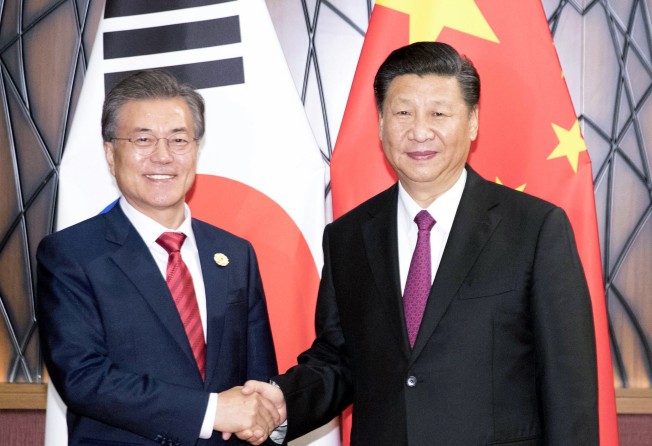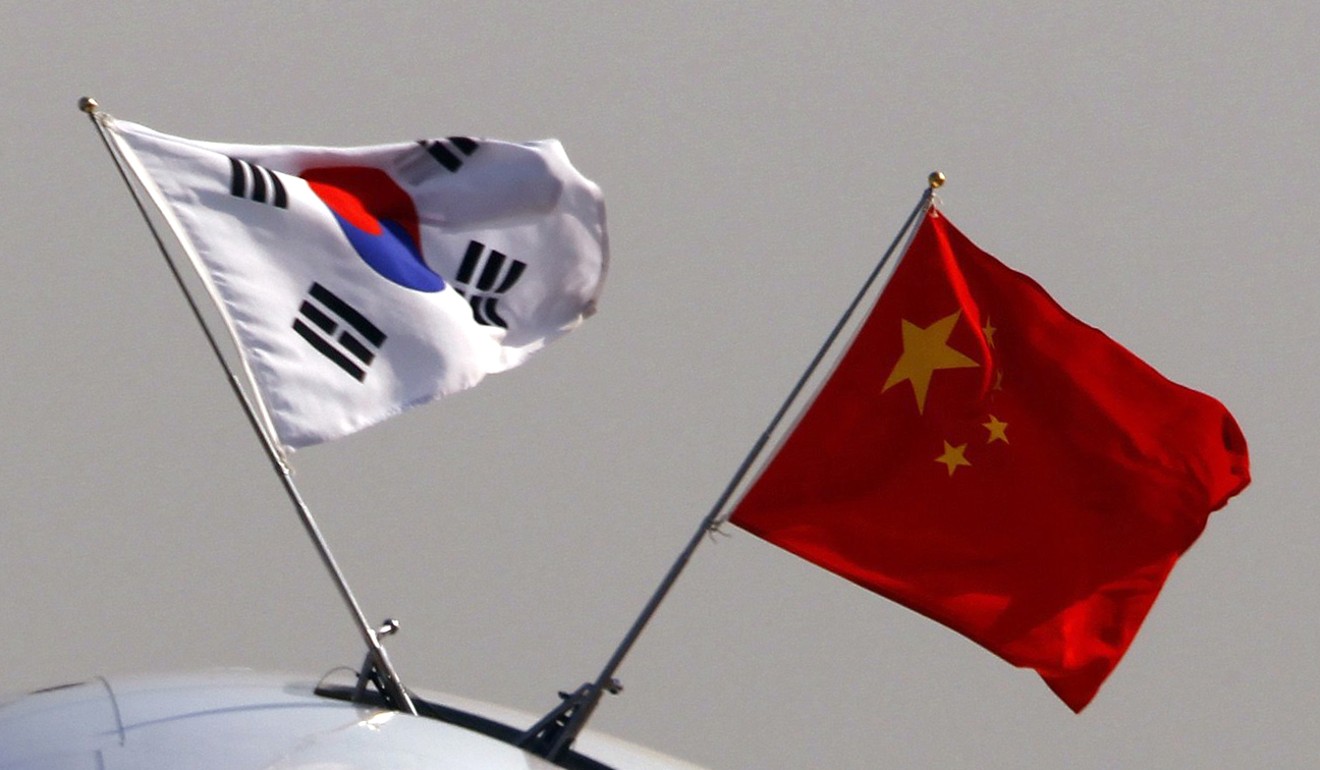Talks between China, US and Koreas essential to tackling nuclear threat, experts say
With South Korean President Moon Jae-in visiting Beijing this week, the two nations ‘should work on building a united front’ against Pyongyang’s nuclear threats

A mechanism to facilitate dialogue between the two Koreas, China and the United States should be established to resolve the nuclear threat posed by Pyongyang, according to diplomacy experts.
The assessment comes as Beijing and Seoul seek to resume communication channels when South Korea’s President Moon Jae-in arrives in Beijing on Wednesday for a four-day state visit, amid escalating tension between Washington and Pyongyang.
Moon’s trip, which includes a summit with Chinese President Xi Jinping and a state dinner, comes less than a month after Pyongyang tested what it claimed is a new type of intercontinental ballistic missile capable of hitting all of the US mainland.
The US condemned the launch and responded by conducting large-scale military drills with South Korea last week, which North Korea said made war “an established fact”.
While the United Nations Security Council is considering ways to refresh current sanctions against Pyongyang, a US proposal to cut off oil supplies has been rejected by Beijing. Senior UN official Jeffrey Feltman on Saturday flew to Beijing after a five-day visit to Pyongyang aimed at defusing the crisis.
Experts said the Korean Peninsula was at “a critical moment”, and that Beijing and Seoul – with a shared interest in preventing conflicts in the region – should work on building a united front.

“I think (Seoul and Beijing) should deepen mutual trust on respective strategic intentions and immediately facilitate strategic communications in various channels,” Shin Jung-seung, South Korea’s former ambassador to Beijing, said.
“It is desirable to have Korea-China-US trilateral dialogue on the North Korean nuclear issue as soon as possible, the agenda of which would include crisis management on the Korean peninsula.”
Shin Sang-jin, a professor from Kwangwoon University, said US involvement remained the key.
“Talks between South Korea and China [will not go a long way] in resolving the issue,” he said. “Discussions between the US, China and the two Koreas are necessary.”
Xi and Moon agreed to reinstate relations between South Korea and China in all sectors during the Asia-Pacific Economic Cooperation summit in Vietnam last month. The agreement came after a year-long stand-off over the deployment of a US anti-missile system known as the Terminal High Altitude Area Defence System, or THAAD, under former South Korean president Park Geun-hye.
Before that, attempts to negotiate with Chinese foreign ministry officials had been rebuffed by Beijing, according to a South Korean diplomatic source. In November last year, high-level military dialogue between the two armies was also suspended because of heightened tensions, South Korea’s news agency Yonhap reported.
Moon told the state-run CCTV on Monday that THAAD was deployed to deter North Korea and does not target China.
Former ambassador Shin said despite the THAAD issue, the two nations should make efforts to normalise their relationship.
“I hope the two countries can express their intention to start free trade negotiations on service and investment in the near future,” he said.
Cheng Xiaohe, an associate professor at Beijing’s Renmin University of China, said the two nations’ decision to put aside the dispute over THAAD and restore bilateral ties would send a strong message to Pyongyang and Washington, further strengthened by Moon’s visit.
“[Moon and Xi] may try to find a common voice over the North Korea crisis and even issue a joint statement,” he said. “Such a consensus, if reached, would not only rein in and put pressure on North Korea, but also restrain any attempt by the US to use force,” he said.
But deep political trust cannot be built in a day, experts said, saying that China’s position on THAAD had not changed.
“To build an intimate, deep relationship would be hard, especially since South Korea is a US ally,” Professor Sun Xingjie, of Jilin University, said. “But the THAAD row aside, both [countries] need to find a way to gradually establish a system of cooperation.”
During his trip this week, Moon will also seek to rebuild economic ties with China. According to the Korea Chamber of Commerce and Industry, the president will be accompanied by a large business delegation consisting of executives from more than 260 companies and industrial associations, Yonhap said.